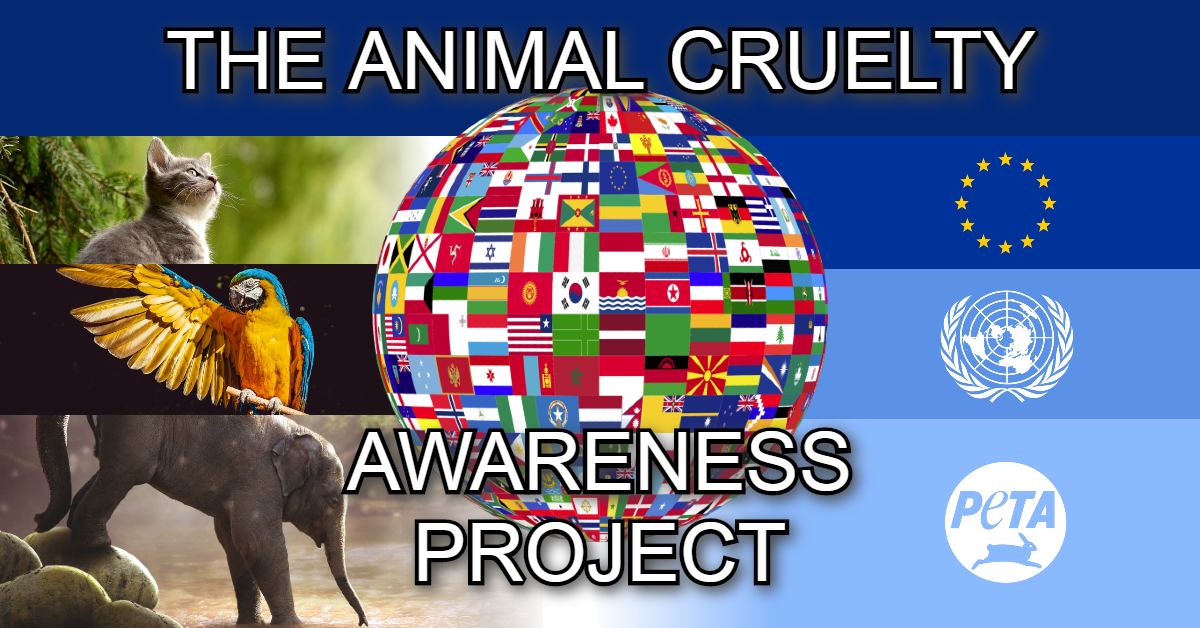Animal cruelty manifests in numerous pernicious forms, often eliciting visceral reactions from the public. In transgressing the boundaries of ethical treatment, a complex tapestry of laws and regulations emerges across various nations. Consequently, the question arises: is animal cruelty illegal in the UK, USA, Canada, and Australia? A thorough examination unveils not only the legal frameworks but also the cultural underpinnings that shape these jurisdictions’ approaches to safeguarding animal rights.
To begin with, the United Kingdom stands as a paradigm of animal welfare legislation. The Animal Welfare Act of 2006 epitomizes a comprehensive framework aimed at ensuring the well-being of creatures under human care. This legislative edifice articulates that animals are sentient beings, deserving protection from unnecessary suffering, neglect, and abuse. Offenders may face severe penalties, including imprisonment and substantial fines, depending on the transgression’s gravity.
Moreover, the UK has instituted many organizations dedicated to promoting animal rights, such as the Royal Society for the Prevention of Cruelty to Animals (RSPCA). These organizations play a pivotal role in enforcing existing laws and raising awareness about the ethical treatment of animals. The amalgamation of robust legislation and societal advocacy connotes a collective disdain for animal cruelty, demonstrating a cultural commitment to protecting the voiceless.
Conversely, the legal landscape in the United States exhibits a fragmented approach toward animal welfare. While federal laws exist, such as the Animal Welfare Act of 1966, which regulates the treatment of animals in research, exhibition, and transport, compliance largely hinges on states’ individual statutes. Consequently, the legality of animal cruelty can differ tremendously, ranging from stringent punitive measures in some states to minimal protections in others.
Some states have enacted laws specifically addressing animal cruelty, including felonies and significant penalties for offenders. In contrast, others lag, categorizing animal cruelty as a mere misdemeanor or failing to address it entirely. This disparity may arise from cultural variances, where the idea of animal companionship diverges significantly across regions. Certain states in the U.S. embrace a frontier ethos, where animals are often viewed as property, diluting the gravity of their treatment over others.
Transitioning to Canada, the legal framework shares similarities with that of the United States, albeit with some poignant distinctions. The Canadian Criminal Code encompasses provisions against animal cruelty, penalizing neglect and willful harm. However, the application and enforcement of these laws can be inconsistent, leaving gaps that allow some indefensible actions to go unchecked.
Furthermore, the introduction of Bill S-203 in 2019 aimed to enhance protections for animals, echoing a burgeoning public consciousness around animal rights. This bill, while a significant step toward strengthening legal repercussions against cruelty, still underscores a wider societal recognition that animosity towards animals must be eradicated through legislative fortification and community engagement.
Australian law, however, paints an intriguing portrait of both progress and challenges in animal welfare. Each state possesses its own animal welfare legislation, with the Animal Care and Protection Act in Queensland serving as one of the more rigorous frameworks. These laws typically encompass stipulations regarding the humane treatment of animals, and violations can lead to hefty fines and criminal sanctions. Furthermore, some Australian jurisdictions have instituted stringent laws prohibiting cruelty toward domestic animals and wildlife alike.
Despite these protective measures, the reality remains troubling. Instances of animal cruelty persist, bespeaking a need for vigilance and ongoing advocacy. The Australian public’s fascination with animal welfare has catalyzed a cultural shift, with a growing number of individuals mobilizing against cruelty in various forms, such as inhumane farming practices and wildlife exploitation. Yet, the journey toward eradicating animal cruelty remains fraught with challenges, necessitating sustained engagement at every societal level.
A comparative analysis of these four nations elucidates a broader narrative surrounding animal rights. While legislative frameworks exist to combat cruelty, cultural perceptions and enforcement efficacy differ significantly. The juxtaposition reveals an assertion that compassion for animals must transcend mere legal obligation, morphing into a societal norm reflective of ethical interplay with the natural world.
The interrelation between legal frameworks and cultural attitudes highlights a pressing need for education and advocacy. By fostering awareness of animal welfare issues, societies can create an environment where abuse is unequivocally condemned and empathy reigns supreme. As nations evolve, the aforementioned disparities in animal cruelty laws urge each society to scrutinize its relationship with the animals that share their ecosystem.
Furthermore, understanding the roots of animal cruelty—from ignorance to rooted societal norms—offers insights into how to confront this pervasive issue effectively. Engaging communities in conversations about empathy and responsibility can engender a collective ethos of stewardship rather than exploitation. Thus, while the question of legality is crucial, it is merely the surface of a much deeper inquiry into humanity’s relationship with the animals that inhabit this planet.
As animal advocates around the globe strive for more cohesive protections, the legal frameworks will undoubtedly continue to evolve. The persistence of animal cruelty, juxtaposed with the call for compassionate stewardship, serves as an impetus for change, emphasizing that the battle against cruelty is not merely regulatory but deeply intertwined with cultural transformations. A harmonious coexistence, where animals are treated with dignity and humanity is realized through relentless advocacy, education, and a firm commitment to ethical principles.








